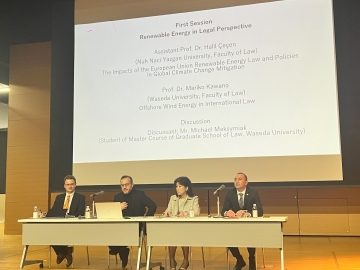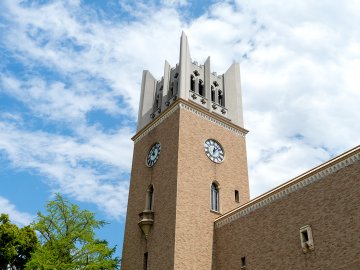Medical Services Crises in Prisons
Professor Tokikazu KONISHI
(Research Staff, Faculty of Law)
(on 14 April 2016)
1. Problem
One of the problems that Japanese prisons are facing is the crisis of medical services therein. The Ministry of Justice provides medical services to all inmates. Expenses for these services are paid from the national treasury, making them available to the sick inmates free of charge.
According to Article 62 of the Act on Penal Detention Facilities and Treatment of Inmates and Detainees (Act No. 50 of 2005), when an inmate is injured or suffers from any disease, the warden of the penal institution must promptly take necessary measures for him or her, such as securing medical care provided by physicians who are on the staff at the penal institution, unless these measures are contrary to the will of the inmate (except in cases where the life of the inmate is endangered and where he or she is at risk of infecting others with his or her disease).
However, Japanese prisons have an acute shortage of physicians. As of April 1, 2014, the ratio of the actual number of physicians working in correctional institutions to the required number was 77% (Sakurai, 2015: 6). This may be responsible for the poor provision of medical services for inmates in need. In turn, this is a problem associated with the human rights of prisoners.
2. Background
Why have prisons seen a reduction in the number of physicians working with them?
There are many reasons behind this problem. Since prison physicians are government employees, they are referred to as “correctional medical officers.” At present, correctional medical officers are allowed to seek “training” from external medical institutions during their working hours (usually two days per week) for improving of their medical skills. However, as this “training” does not have an adequate legal safeguard, they have to work for free in external medical institutions during these sessions.
Moreover, the wages paid to correctional medical officers are lower than the average pay of physicians in hospitals, and the negative image associated with correctional medical services is also widespread.
As a result, doctors shy away from working in prisons.
3. Solution
In order to solve this problem, a new Act was legislated in 2015. This is the Act on Special Provisions of the Dual Employment and Working Hours of Correctional Medical Officers, etc. (Act No. 62 of 2015).
According to this Act, dual employment of correctional medical officers can be easily permitted. Heretofore, when they wished to have dual employment, they had to obtain permissions both from the Prime Minister and the Minister of Justice. However, this Act has provided that, if correctional medical officers have received the approval of the Minister of Justice, they can work for remuneration in external medical institutions as well as in prisons.
As for working hours, a flextime system was introduced for correctional medical officers. Under this system, the working hours of correctional medical officers can be set at 155 hours per four weeks on their request.
4. Outlook
The Ministry of Justice has a plan to establish centers for correctional medical services in Tokyo Metropolis and Kyoto Prefecture. Under this plan, these centers will be established through the integrations of existing, nearby medical prisons and medical juvenile training schools. These centers can make efficient and effective use of the limited human and physical resources available for medical services in prisons.
In the near future, the role of dually employed correctional medical officers in local medical institutions is expected to be incorporated into the basic policy on community medical care plans mapped out by the Ministry of Health, Labour and Welfare. Thus, it will be necessary for the Ministry of Justice to increase its cooperation with local medical institutions and the Ministry of Health, Labour and Welfare.
Reference
Sakurai, A. (2015). Kyousei-shisetsu no ishi no keizoku-teki katsu antei-teki na kakuho ni mukete: Kyousei-ikan no kengyo oyobi kinmu-jikan no tokurei tou ni kansuru houritsu no seiritsu [Toward continuously and stably securing physicians in correctional institutions: Enactment of the Act on Special Provisions of the Dual Employment and Working Hours of Correctional Medical Officers, etc.]. Rippo to Chosa, 370, 3–18.







